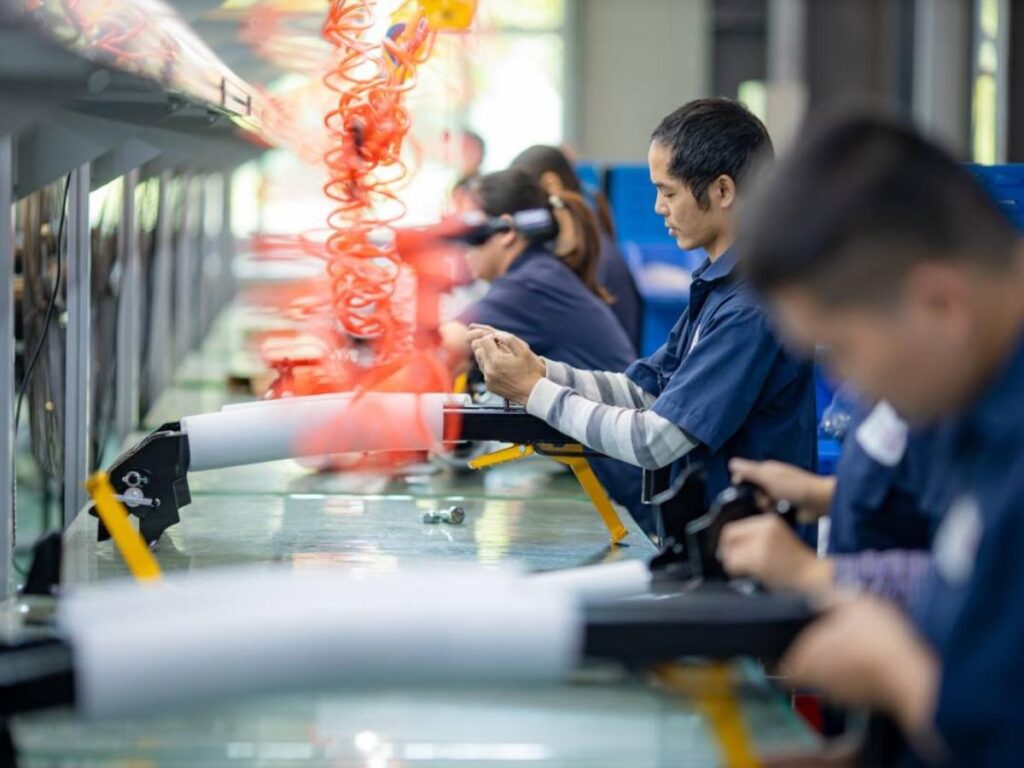Considering Contract with Supplier Who Manufacture Products in China

Contract manufacturing (CM) is common and popular in China. This option is appropriate for large organizations that don’t want to own factories or invest in capital equipment as well as smaller businesses where it isn’t feasible to create manufacturing facilities. Employing a Chinese contract manufacturer allows businesses to concentrate their efforts on product innovation, sales, and marketing apart from price savings.
Hundreds of thousands of global companies have decided to move manufacturing to China and hire local businesses that manufacture products in China at affordable prices and then sell them on international markets. The OEM Manufacturing Contract in China governs the connections between the foreign business and the Chinese manufacturer.
Contract manufacturing is a reasonable choice for a large corporation with significant volume, an appropriate leverage, and mature products.
However, there is a risk for smaller firms in their early development cycle. Once you choose a contract manufacturer, you are bound by all their factories, equipment, pricing, and agreements.
Avoid the temptation to quickly bring the CM on board without a proper supply agreement and leave several important issues unresolved. There are important considerations to keep in mind before embarking into contract manufacturing, regardless of whether you are unfamiliar with it or are considering outsourcing to China for the first time.
If the contract manufacturing project is poorly managed, organizations run the risk of harming their reputation, goodwill, and financial standing. Here are a few suggestions from China sourcing experts to help you ensure that your project is profitable if you’re considering outsourcing to suppliers who manufacture products in China.
Register Intellectual Property (IP) in China
This is one of the most important things that businesses can do, even before they start looking for manufacturers that manufacture products in China. Design patents, trademarks, and copyrights are all covered by intellectual property rights. Western companies often skip this stage because they are unfamiliar with China’s legal framework for IP rights.
However, if your product’s IP rights are crucial to your business, you should avoid doing this because, in China, the first company to register a trademark or patent will also be the one to receive it, regardless of whether the product in question has rights under the laws of the other Western countries.
Additionally, after you find a manufacturer, you should ask them to sign a NNN agreement (non-disclosure, non-use, non-circumvention) to protect your intellectual property rights. The NNN agreement should be drafted in Chinese language and enforceable in a Chinese court.
Choose Right Party
You should work with a company that has the necessary financial resources. This appears to be a simple concept, but it frequently goes unreported because many customers enter contracts with independent third-party sourcing companies rather than the CM who owns the plant and manufacture products in China. The customer’s legal options after discovering a product flaw are limited to the contracting party and not the specific CM.
You should confirm that the party you’re paying isn’t a business with few or no assets. Consider having the Chinese CM co-sign the supply agreement or guarantee the performance of the supply agreement if the acquiring company is the foreign sales subsidiary of a Chinese CM.
Since many Chinese companies don’t have an official English name, therefore they need to identify themselves in the offer agreement with both their legal name in Chinese and their English name.
Factory Presence
Being present at the factory guarantees that all staff members and management have a thorough understanding of the foreign company. Make sure you’re physically present at the factory regularly so the factory ties your presence there with your production, either through a third internal quality business or your personnel.
Create an OEM Contract
An Original Equipment Manufacturing or OEM contract is created to ensure that those who manufacture products in China meet the commercial and technical requirements of foreign companies. The OEM contract serves as additional evidence that the manufacturer respects the foreign companies’ intellectual property rights and confidentiality. It includes various information, such as specifications, cost, packaging, wrapping, design, models, tools to be used, materials to be utilized, as well as precautionary counselling.
Keep Samples That Are Approved
During the sourcing process, things frequently go through revisions and changes, and then again once production starts certain modifications and alterations are made. Keeping an authorized and approved sample in your office, as well as one in production that can be used to validate the assembly product by standard management, is essential to getting along with your Chinese suppliers.
Regular Inspection for Quality Check
Mistakes can still occur even if you and your contract manufacturer have a very strong OEM agreement. You should work to prevent this from happening because, even if mistakes are made and you ask your Chinese manufacturer to correct them based on the agreement, the factory may still take some time to make the necessary changes, pushing back the deadline for both lead time and delivery.
You don’t want it to happen because it will leave your consumers unhappy along with disorganized stocks. Therefore, undertake routine internal control inspections from a third party. This third party can be a company situated in China that handles all your contract manufacturing for you or a sourcing agent.
Different Stages of Inspection
Pre-production Inspection
The risk factor during production is reduced by pre-production inspection. Additionally, it helps the company evaluate the suppliers early on to see whether they are a good fit for the job. It is also cost-effective.
DUPRO or In-Process Inspection
DUPRO or During Production Inspection process is commenced during the beginning stage of the production process. Examining randomly selected items from the pile enables the determination of whether the manufacturing process is continuing under predetermined standards or not.
Final Inspection
Final inspection is the analysis of the final step of the manufacturing process. The product is carefully examined while keeping the customer’s needs in mind. As this is the final inspection of the product during the process, agencies carefully consider every aspect.
Pre-shipment Inspection
Pre-shipment inspection is also important as it is done to endure that all products are packaged and secured well before the shipment is ready and out for import/export.
Searching online and sending a few emails will suffice to locate a contract manufacturer in China. If not, a sourcing agent will present options to you. Negotiate with your manufacturing partner on pricing, schedule, and quality once you’ve chosen them. Work for a mutual agreement where you are not trying to take advantage of them.


 The Secret to Longevity in Industrial Infrastructure
The Secret to Longevity in Industrial Infrastructure  Smarter Distribution Planning Powered by Modern Warehousing
Smarter Distribution Planning Powered by Modern Warehousing  Using A SIP Calculator For Smart Wealth Growth
Using A SIP Calculator For Smart Wealth Growth  Why travellers prefer gift cards over currency exchanges?
Why travellers prefer gift cards over currency exchanges?  Customised Facilities Management Solutions: Tailoring Services to Meet Industry-Specific Needs
Customised Facilities Management Solutions: Tailoring Services to Meet Industry-Specific Needs